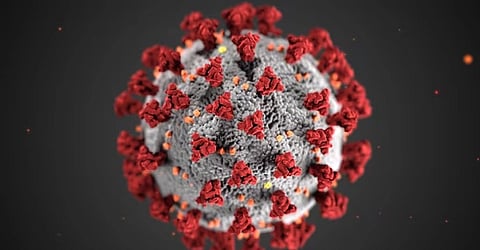

A new strain of the Covid virus was detected in Kerala. It was found to be the cause for death for 5 people in one day. The Health Minister of Kerala says that its not much of a cause of concern as its infection does not result in symptoms more severe than other strains. Nevertheless, the state of Karnataka is on high alert and hospitals have been instructed to conduct mock drills and check the oxygen levels and medicines in the hospitals. Here’s what we know of the strain so far:
JN.1 is a highly mutated variant of the Omicron strain of the Covid-19 virus. It is closely related to the BN.2.86, also known as Pirola, with an additional mutation in its spike protein. Spike protein is what allows the virus to enter the human body and cause harm. A virus mutates in order to adapt to any adversity that it may face in spreading and infecting, such as an Immune system. A highly mutated virus has capability to spread faster and avoid immunity. The JN.1 is a highly mutated strain of the Covid virus. It was deemed as the fastest spreading strain of the virus by the US Centre for Disease Control and Prevention (CDC).
It was first discovered in the United States, with the first case being recorded in September. In Early December, cases were discovered in China and most recently, growing numbers of cases have been reported in Kerala.
What are the Symptoms?
Its symptoms are not that different from the other variants. Initial symptoms include Fatigue, sore throat, headaches, Fever, loss of taste and smell and respiratory problems. The Covid virus causes respiratory problems for the infected. It is advised to consult a doctor if the symptoms persist or grow more severe.
It's symptoms are not much more severe than the other strains but is able to spread faster and infect those with built up immunity, such as those vaccinated. WHO (World Health Organisation) has advised for increased surveillance and measures in order to prevent the spread of the new strain. The most at-risk individuals are the same as with the other strains, i.e. the elderly, the immunocompromised and those with pre-existing medical conditions. Nevertheless, Caution is advised.